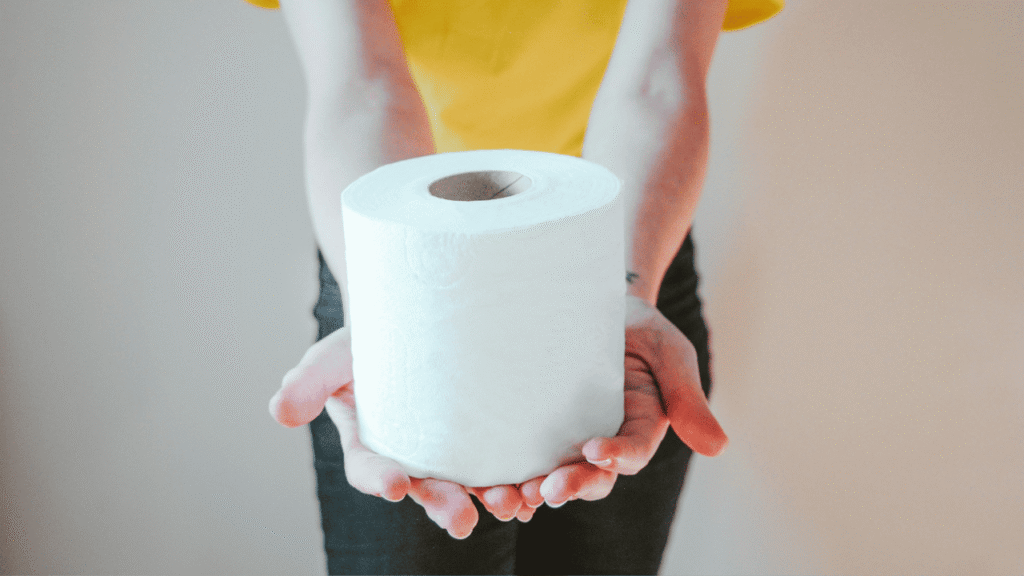6 Causes of Loose Motions (and 3 Best Home Treatments)

Dr. Tehmasip Ali
26th May, 2025
⏱︎ 7 min read

Top 6 Causes of Loose Motions:
The most common causes of loose motions are:
- Food intolerances
- Viral infection
- Dietary factors
- Medications
- Digestive disorders
- Stress and anxiety
Keep Reading to Discover:
What Exactly Causes Loose Motions?
1. Food Intolerances and Sensitivities
When your body cannot properly digest certain foods, either due to enzyme deficiencies or sensitivity, it leads to irritation in the digestive tract. This causes an imbalance in water absorption in the intestines, leading to watery stools.
These may include:
- Lactose Intolerance – The inability to digest lactose (found in milk and dairy) causes bloating, gas, and diarrhea.
- Gluten Sensitivity (Non-Celiac) – A sensitivity to gluten (found in wheat, barley, and rye) can cause diarrhea and digestive discomfort.
- Fructose Malabsorption – Inability to absorb fructose (found in fruits, honey, and some processed foods), leading to gas, bloating, and diarrhea.
2. Medications
Certain medications can irritate the intestines, disrupt the normal gut bacteria, or affect how the digestive system absorbs water. This can result in an increase in the frequency and liquidity of stools.
These may include:
- Antibiotics – Can disturb the balance of gut bacteria, leading to overgrowth of harmful bacteria like Clostridium difficile, causing diarrhea.
- Laxatives – Overuse can cause the intestines to work too quickly, preventing proper absorption of water.
- Chemotherapy – Often results in gastrointestinal irritation and diarrhea due to its effect on the intestines.
- Antacids with Magnesium – Excess magnesium can act as a laxative, leading to loose motions.
3. Digestive Disorders
Certain underlying chronic conditions cause the intestines to malfunction, either by speeding up the passage of stool or by impairing the ability to absorb water from stool.
These may include:
- Irritable Bowel Syndrome (IBS) – A functional disorder that can cause alternating diarrhea and constipation. Stress, food, and other triggers can worsen symptoms.
- Inflammatory Bowel Disease (IBD) – Includes conditions like Crohn’s disease and Ulcerative Colitis, where the immune system attacks the intestines, causing chronic diarrhea, inflammation, and ulcers.
- Celiac Disease – An autoimmune disorder where gluten triggers an immune response that damages the small intestine lining, leading to malabsorption and diarrhea.
4. Dietary Factors
Certain foods can irritate the digestive tract or are not easily digested, leading to excessive water in the stool. Additionally, large amounts of certain foods can overwhelm the intestines’ ability to process them properly.
These may include:
- High-Fat Foods – Fatty foods can be hard to digest and may accelerate bowel movements, leading to loose stools.
- Spicy Foods – Can irritate the stomach lining and increase gut motility, leading to diarrhea.
- Sugar Alcohols – Found in sugar-free candies and gums, sugar alcohols like sorbitol can act as a laxative when consumed in excess.
5. Stress and Anxiety
Let me guess. You didn’t see that coming, right? But it’s true…
The gut is highly sensitive to stress due to the connection between the brain and the gut (the “gut-brain axis”). Stress can affect the normal muscle contractions of the intestines, making them move stool more quickly and leading to diarrhea.
This may include:
- Acute Stress – Situational stress (e.g., during exams, public speaking, or travel) can trigger temporary loose motions.
- Chronic Anxiety – Long-term anxiety or panic attacks can lead to frequent digestive upset, including diarrhea.
Looking for a General Physician in Lahore?
At AHMC, we provide you with one of the top MBBS general physicians in the city.

3 Home Treatments to Stop Loose Motions
1. Dietary Management – The Foundation of Recovery
Your digestive system needs simple, easily digestible foods during loose motions. According to a 2019 study in the Journal of Gastroenterology, bland diets reduce intestinal inflammation by up to 40%.
- Focus on the BRAT diet (Bananas, Rice, Applesauce, Toast). Since this diet is easy to digest, it helps to firm up the stool and reduce the frequency of loose motions.
- Eat small, frequent meals instead of large portions
- Focus on binding foods that help solidify stools
Want the complete list?
Here’s the detailed list of EXACTLY what to eat during loose motions.
2. Hydration – Your First Line of Defense
Loose motions cause rapid fluid and electrolyte loss. So, it’s important to keep yourself hydrated.
- Prepare ORS solution: Mix 6 teaspoons of sugar + ½ teaspoon of salt in 1 liter of water, and drink at least 200ml after each loose stool.
- Aim for 8-12 cups of water throughout the day.
3. Rest and Stress Management
The gut-brain connection means stress directly impacts digestive health. The more you control your stress, the higher the chances of loose motions.
- Get 7-8 hours of sleep minimum
- Practice deep breathing exercises (4-7-8 technique)
- Avoid strenuous activities for 48 hours
Loving the Blog So Far?
We post daily health tips like this on our Instagram. Make sure you don't miss them out!
How to Prevent Loose Motions
While it’s not possible to permanently prevent loose motions, with the right strategies, you can definitely reduce their chances.
And here are Dr. Tehmasip’s top strategies to prevent loose motions:
1. Practice Proper Food Hygiene
Why:
70% of loose motion cases stem from contaminated food or water, according to CDC data.
How to implement:
- Wash your hands for 20 seconds before eating
- Cook meat to a safe internal temperature
- Refrigerate leftovers within 2 hours
- Avoid street food during the monsoon season
Dr. Tehmasip‘s advice:
“I’ve seen countless cases of improper food storage. When in doubt, throw it out. No meal is worth three days of loose motions.”
2. Maintain Gut Health Daily
Why:
A healthy microbiome prevents 80% of digestive issues, according to gastroenterology research.
How to implement:
- Eat yogurt or kefir daily
- Include prebiotic foods (bananas, garlic)
- Limit antibiotic use when possible
- Manage stress through meditation
Dr. Tehmasip‘s advice:
“Think of your gut as a garden. Daily probiotics are like fertilizer – they keep the good bacteria thriving and crowd out harmful ones.”
3. Stay Hydrated Consistently
Why:
Proper hydration maintains healthy bowel function and prevents constipation-diarrhea cycles.
How to implement:
- Drink 8-10 glasses of water daily
- Increase intake during hot weather
- Monitor urine color (pale yellow is ideal)
- Limit caffeine and alcohol
4. Identify Food Triggers
Why:
Food intolerances cause 30% of chronic loose motion cases.
How to implement:
- Keep a food diary
- Note symptoms after meals
- Consider lactose intolerance testing
- Try elimination diets under guidance
5. Boost Immunity Naturally
Why:
Strong immunity prevents infectious causes of loose motions.
How to implement:
- Get 7-8 hours of sleep nightly
- Exercise regularly (150 minutes/week)
- Eat vitamin C-rich foods
- Consider vitamin D supplementation
6. Travel Smart
Why:
Traveler’s diarrhea affects 40% of international travelers.
How to implement:
- Drink only bottled water abroad
- Avoid ice in drinks
- Skip raw vegetables and fruits
- Pack probiotics prophylactically
When to See a Doctor for Loose Motions
While most loose motion cases resolve just by the dietary changes mentioned above, certain symptoms require immediate medical attention.
See a doctor if:
- Blood in stools
- High fever (above 102°F)
- Severe dehydration signs (dizziness, dry mouth)
- Symptoms lasting over 3 days
- Severe abdominal pain
- Signs of shock (rapid heartbeat, confusion)
Final Thoughts for You:
Loose motions can be caused by a variety of factors, including food intolerances, infections, medications, digestive disorders, dietary choices, and stress.
By understanding these causes and implementing home treatments like dietary management, proper hydration, and stress reduction, you can effectively manage and stop loose motions.
Additionally, focusing on preventive strategies like proper food hygiene, maintaining gut health, and boosting immunity can reduce the frequency of future episodes.
But Remember,
If the loose motions presist or worsen, and you’re facing some other symptoms, too (like a high fever)… then it’s important to consult a general physician ASAP.
So that they can find the root issue and fix it before it turns into some long-term problem….
Therefore, here’s what we recommend:
FAQs
1. What stops loose motion fast naturally?
Hydration with ORS and bland foods like the BRAT diet (Bananas, Rice, Applesauce, Toast).
ORS helps replenish lost fluids and electrolytes, while the BRAT diet helps firm stools and reduces irritation in the digestive tract. In most cases, these things are enough to stop loose motions.
2. What is the best homemade drink for loose motion?
ORS (Oral Rehydration Solution).
A homemade ORS made by mixing 6 teaspoons of sugar and ½ teaspoon of salt in 1 liter of water is commonly recommended in Pakistan to prevent dehydration caused by loose motions.
3. What is the best loose motion medicine in Pakistan?
Loperamide (Imodium) or Antinal.
These medicines are widely available in Pakistani pharmacies and work by slowing down bowel movements, giving your intestines time to absorb fluids. Always consult with a doctor for proper use, especially if loose motions persist.


Contact Now:

0309-9339981
© 2025. All rights reserved.
© 2025. All rights reserved.
